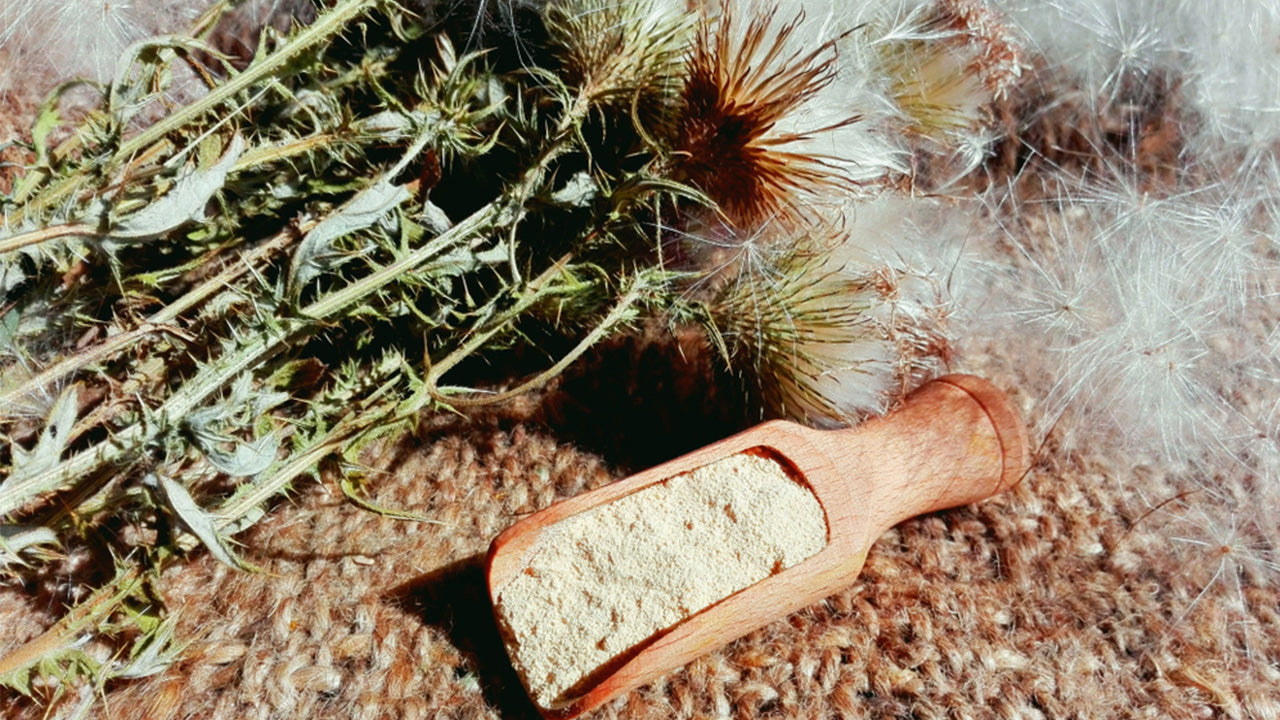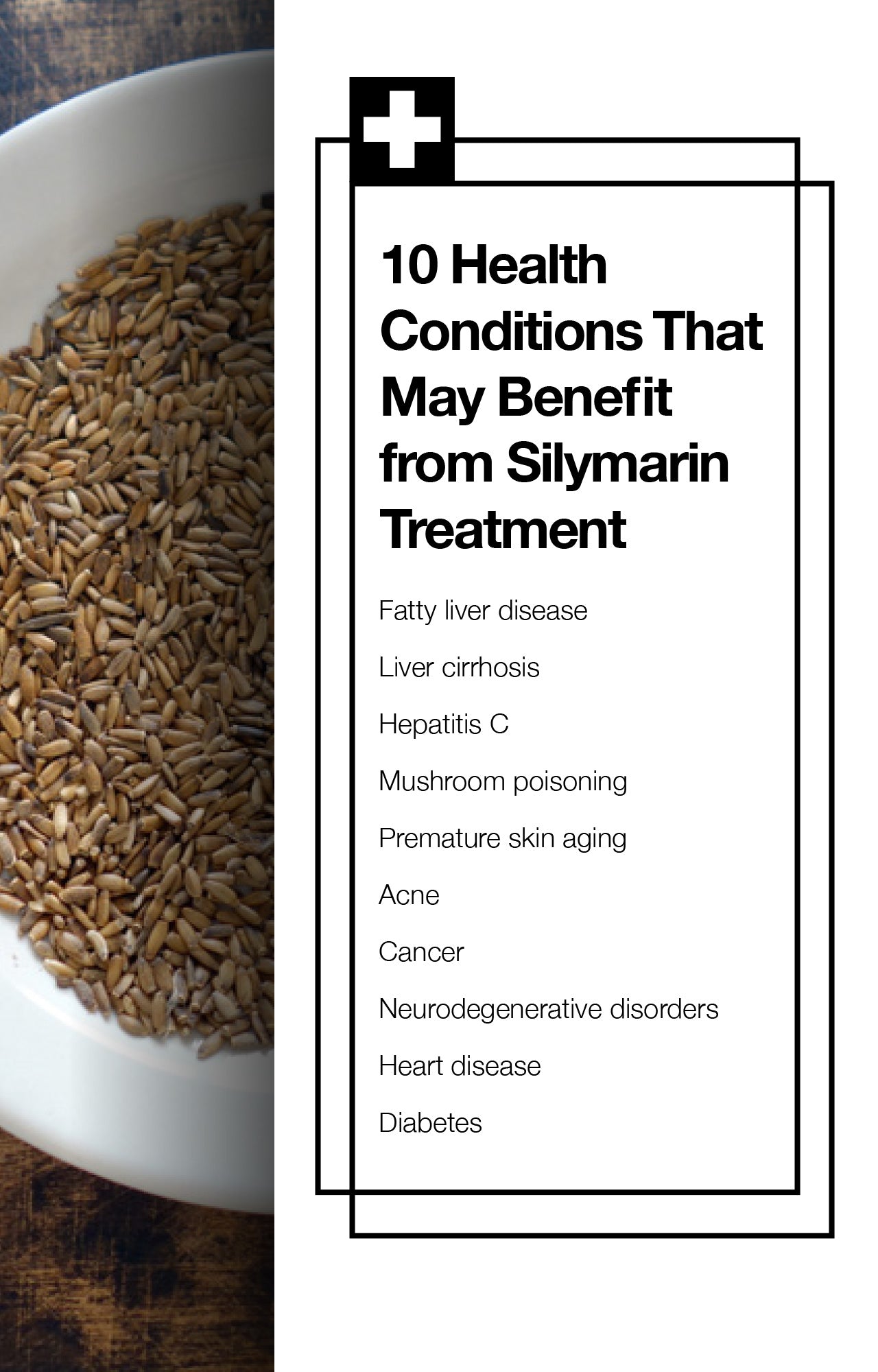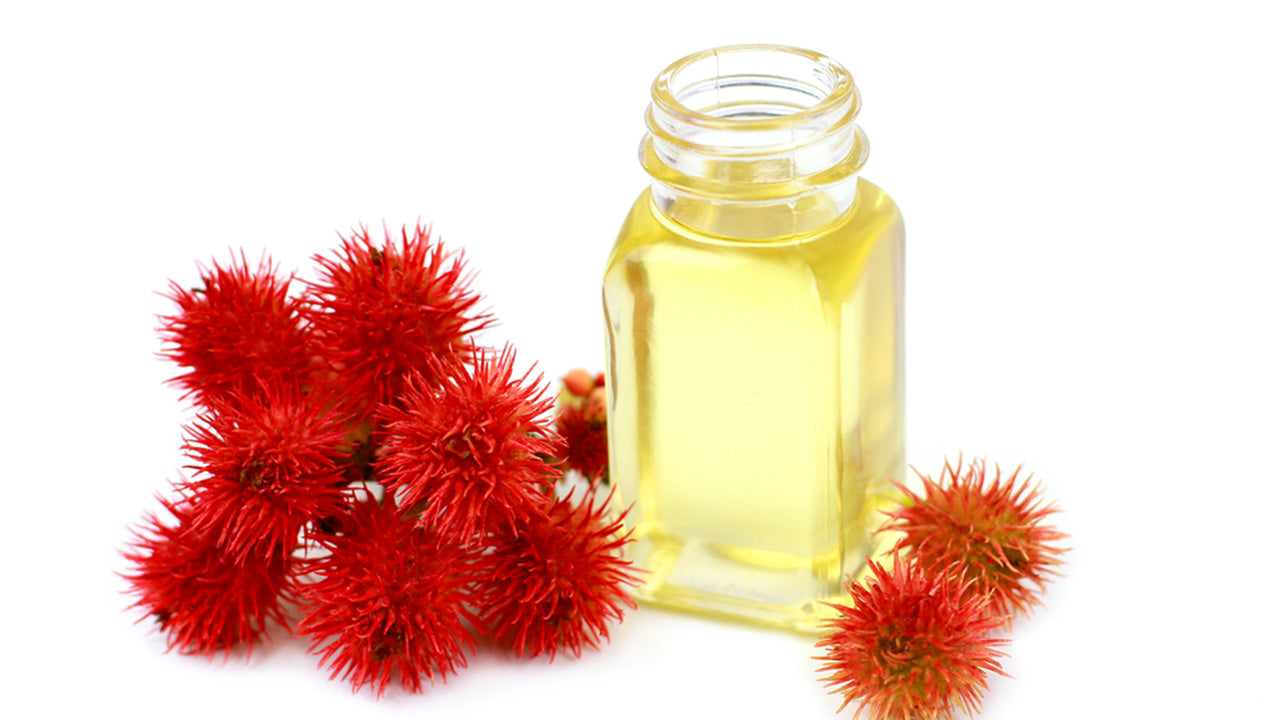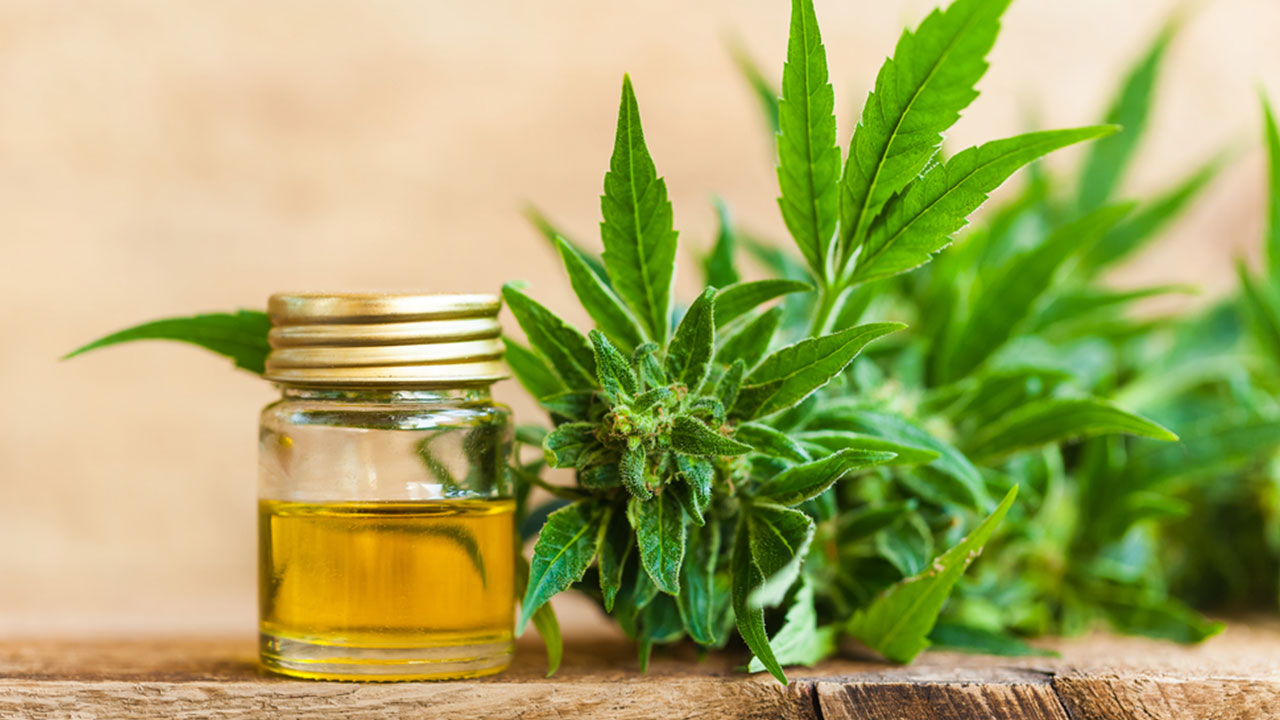Silymarin: A Promising Treatment for Liver Disease and Much, Much More
 By: by Amino Science
By: by Amino Science

Silymarin has been revered for centuries for its hepatoprotective properties. And, more recently, its potential protective effects on the entire body have been the subject of numerous investigations. In this article, we're going to take a closer look at this powerful substance, find out what the studies have to say about the possible effects of silymarin, and uncover whether silymarin offers hope in the treatment of liver disease—and more.
What Is Silymarin?
Although the milk thistle plant (Silybum marianum) is sometimes known as silymarin, the term silymarin more correctly refers to an extract of the seeds of the milk thistle.
Like its parent plant, silymarin is made up of several different components, the eight most important of which are:
- Silybin A
- Silybin B
- Isosilybin A
- Isosilybin B
- Silydianin
- Silychristin
- Isosilychristin
- Taxifolin
Silybin A and B are commonly known as silibinin, which is also thought to be the major active ingredient in silymarin.
Silymarin is what's known as a flavonolignan—a term that reflects the fact that it's composed of two different polyphenols:
- Flavonoids
- Lignans
Polyphenols are the largest known category of plant chemicals. They're known to act as both antioxidants and anti-inflammatories and have even been shown to slow down the proliferation and growth of cancer cells.
The antioxidant activity of polyphenols makes these plant chemicals effective scavengers of free radicals—unstable oxygen molecules that are linked to diseases associated with oxidative stress, including heart disease, type 2 diabetes, cancer, and Alzheimer's disease.
Lignans, in particular, are also known for their ability to act as phytoestrogens. These phytonutrients are known to play a role in modulating hormonal imbalances, which may help reduce the risk of certain types of cancer.

Health Benefits of Silymarin
While silymarin is best known for its role in protecting against liver damage, including that caused by non-alcoholic fatty liver disease (NAFLD), alcoholic liver disease, and hepatitis C, its polyphenolic nature means it has the potential to positively affect a number of health conditions.
But what exactly does the science have to say?
Let's take a look.
Liver Health
The main mechanism by which silymarin and its components are thought to affect liver function is via the decrease in the production of free radicals and lipid peroxidation.
For example, a study published in the World Journal of Hepatology noted that silymarin inhibits the production of free radicals associated with the consumption of toxins like alcohol and acetaminophen and thus decreases lipid peroxidation and cellular damage.
Researchers also noted that silymarin increases the production of glutathione—the body's master antioxidant—in the liver. What's more, silymarin increases protein synthesis by liver cells called hepatocytes, which helps boost the liver's innate immune response.
In addition, a clinical trial published in the Journal of Hepatology found that patients with liver cirrhosis who were given 140 milligrams of silymarin 3 times a day had significantly longer survival rates than patients who received a placebo. What's more, researchers noted that silymarin treatment had no noted side effects.
A review published in the journal Molecules noted that the antioxidant, anti-inflammatory, and antifibrotic properties of silymarin make it useful in the treatment of conditions frequently associated with liver damage, including chronic liver diseases.
Studies have found that this hepatoprotection may extend to cases of acute and chronic hepatitis C as well. For example, a study published in the journal Hepatology found that silymarin helps block entry of hepatitis C into liver cells as well as cell-to-cell virus transmission.
Interestingly, a milk thistle extract called Legalon SIL, which is a proprietary form of silibinin given as an intravenous injection, has been found in studies to effectively reverse mushroom poisonings related to ingestion of Amanita phalloides—the death cap mushroom.
How does it work?
A study published in the journal Current Pharmaceutical Biotechnology noted that silibinin interacts with specific hepatic proteins to block cellular uptake of amatoxin, which in turn halts the progress of liver failure, thus allowing the patient to recover.
Brain Health
The potential effect of silymarin on brain health has been investigated as well, and researchers have discovered that the same properties that make silymarin a potentially valuable tool in the treatment of liver disease may make it useful for the brain.
For example, a review published in the journal CNS Neuroscience & Therapeutics noted that the neuroprotective effect of silymarin may be attributed to its antioxidant activity as well as its ability to modulate cellular apoptosis, inflammation, and amyloid plaque deposition.
Researchers even went so far as to say that silymarin's properties make it a potential "wonder drug" in the treatment of neurodegenerative disorders—though they did note that flavonoids generally have the ability to cross the blood-brain barrier, this capacity should be established in silymarin prior to clinical studies.
Endocrine and Heart Health
Silymarin's ability to mitigate oxidative stress has made it of interest to researchers studying ways to prevent and treat both diabetes and heart disease.
In a randomized controlled trial published in Phytotherapy Research that looked at the effects of silymarin on patients with type 2 diabetes, researchers found that treatment with silymarin 200 milligrams 3 times a day for 4 months resulted in significant decreases in fasting blood sugar, hemoglobin A1c, total cholesterol, triglycerides, low-density lipoprotein (LDL)—the so-called "bad" cholesterol—and the liver enzymes aspartate aminotransferase (AST) and alanine aminotransferase (ALT).
These remarkable results hold promise not only for those diagnosed with type 2 diabetes but also for the millions suffering from heart disease, insulin resistance, or fatty liver disease.
Immune Health
Earlier we noted that silymarin has been noted to boost protein synthesis in the liver and thus stimulate the liver's innate immune response. This positive effect on the liver has been found in some studies to extend to the immune system as a whole.
For example, a study published in the journal Medical Science Monitor found that a standardized milk thistle extract boosts the proliferation of lymphocytes as well as several markers associated with an increase in overall immune response.
Skin Health
The antioxidant activity of silymarin may also have a role to play in skin health. A study published in the journal Molecules found that silymarin was effective against UVA radiation and the enzymes that break down collagen and elastin—proteins that give skin firmness and elasticity.
Another study published in the International Journal of Oncology that utilized an animal model found that topically applied silymarin provided photoprotection to the skin and inhibited carcinogenesis.
These findings led researchers to conclude that silymarin may be a useful addition to standard sunscreens and may have a potential place in the treatment of skin diseases associated with UV radiation.
Interestingly, silymarin's antioxidant activity may also make it a possible treatment for acne.
For example, a clinical study published in the Journal of Clinical & Experimental Dermatology Research found that patients with acne vulgaris who were treated with silymarin 70 milligrams 3 times a day, in the form of the dietary supplement Legalon, experienced an astonishing 271% increase in serum levels of glutathione and a 53% decrease in acne lesions.
Cancer
As just noted, silymarin has been found in studies to protect the skin from dangerous UV radiation—a known risk factor in skin cancer. In addition, studies have demonstrated that it may be a useful adjunct to the prevention and treatment of other types of cancers as well.
For example, a review published in the Journal of Biomedical Research noted that silibinin exhibits significant preventive and therapeutic activity against numerous epithelial cancers, including colon cancer. What's more, researchers noted that silibinin interferes with the proliferation and growth of colon cancer in several ways:
- It induces cell cycle arrest
- It causes cell death
- It interferes with cellular metabolism
- It inhibits signaling and regulatory pathways involved in angiogenesis, inflammatory responses, and tumorigenesis
In addition, a review published in the journal Cancer Letters noted that a number of studies have established the role of silymarin in the prevention and treatment of a number of other cancers, including prostate, ovarian, lung, bladder, and breast cancers.
As you can see, the benefits of silymarin, as documented in multiple studies, are potentially vast. However, it may be possible to get even more out of this remarkable flavonolignan by ensuring you're receiving a balanced supply of amino acids.
Why Amino Acids?
The role of amino acids in creating the proteins that build our muscles and ensuring the proper functioning of almost every biochemical process has earned these organic compounds the deserved title of "the building blocks of life."
What's more, amino acids are so crucial to life that all the organs and tissues in our bodies must have a balanced supply in order to function properly.
Which means that having a steady supply—especially of the nine essential amino acids, which our bodies can't form on their own and must receive from foods and supplements—is important not just for our overall health but also for supporting the body during times of disease.
In fact, numerous studies have documented the effects amino acids have on everything from Alzheimer's disease to heart failure, diabetes, and fatty liver disease.
So if you're currently suffering from liver disease—or any of the other conditions studies have found may benefit from silymarin treatment—don't hesitate to speak with a qualified health care professional about the potential benefits of adding silymarin and a balanced essential amino acid supplement to your therapy regimen.


Up to 25% off Amino
Shop NowTAGS: liver natural cures
Join the Community
Comments (0)
Most Craveable Recipes




 833-264-6620
833-264-6620



















